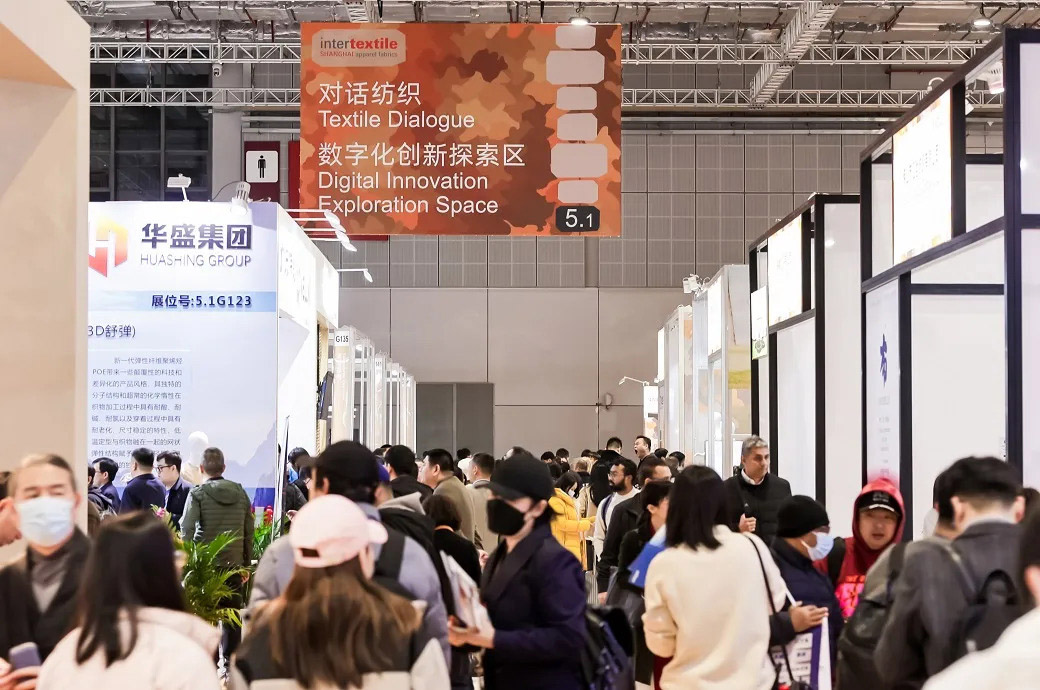
Source: www.fibre2fashion.com
After three days of facilitating cross-border business across the show floor, fringe events, and various Spring / Summer 2025 fashion forums, the global apparel flagship fair closed doors on 8 March. Following the government’s easing of visa requirements, the over 3,000-supplier showcase saw a 22.9% increase in international exhibitors compared to the previous Spring Edition. Welcoming nearly 90,000 visitors from 116 countries and regions, international visitor numbers rose by 99% at this year’s show, with a higher than usual 87% returning on Days 2 and 3 signifying considerable sourcing intent. Across 190,000 sqm and seven halls of the National Exhibition and Convention Center (Shanghai), domestic buyer demand for various Chinese and globally produced textiles was also high, particularly in categories with luxury, sustainable, and functional elements.
Just before the fair’s close, Ms Wilmet Shea, general manager of Messe Frankfurt (HK) Ltd, commented: “From raw materials to finished garments, apparel textiles is one of the world’s most interconnected industries, and this Spring Edition’s strong showing of exhibitors and buyers has reiterated the importance of Intertextile Apparel to the global market. With multiple opportunities for insight and innovation exchange, domestic and international visitors were able to stay on-trend for Spring / Summer 2025. The exceptional return rate of overseas buyers across the three days bodes well for the global market, and speaks to the multitude of sourcing options at our comprehensive platform. After the high attendance and positive feedback for this show, we have already set our sights on Intertextile Apparel’s 30th anniversary edition this autumn, which is sure to be unmissable.”
Joining the Spring Edition’s strong flow of domestic buyers, the top five visiting countries and regions were Korea, Hong Kong, India, Russia, and Japan. In addition, the fair welcomed over 100 buyers from delegations representing industry associations of Hong Kong, Malaysia, the Philippines, Russia, and Vietnam. Pavilions and zones from France, Italy, Japan, Korea, Taiwan, and Türkiye were well received, as were group pavilions from Korea Textile Center, Lenzing, and OEKO-TEX.
Meanwhile, suppliers from new exhibiting countries showcased varying products, including Ethiopia’s Arbaminch Textile Share Company, with sustainable natural and synthetic fabrics; Peru’s Topy Top SA and its 100% cotton knitted garments; and Spain’s Monday&Co, displaying pattern designs for fashion and interiors. From across the textile spectrum, many of the show’s exhibitors lauded the renewed ease of doing business and the prevailing strength of the domestic market.
